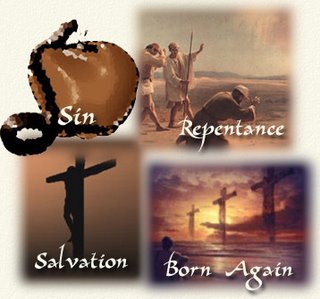Last evening on the campus of George Mason out in Fairfax, the Commonwealth Coalition had a rally to encourage students to vote no on the constitutional amendment concerning marriage that will be on the November ballot in Virginia. The rally began with a prayer vigil at which a number of clergy spoke.
Here's what I said.
For too long, those who oppose acceptance and equality of LGBT people and their families have misappropriated the terms pro-marriage and pro-family in the service of an anti-gay agenda. Too often they have based their theft of these terms on midguided, selected reading of scripture. But somehow they missed the part about "letting justice roll down like a mighty water and righteousness like an ever-flowing stream."
Right here, right now we reclaim the language of marriage and family, of justice and of righteousness, as our own.
Authentically pro-marriage laws extend the rights, responsibilities and values of marriage to all adults in committed and loving relationships regardless of sexual orientation or gender identity.
Authentically pro-family laws sustain, uphold and protect the diversity of human families throughout God's good creation.
We call on all those who support justice and equality to reclaim the true meaning and values of marriage and family, and to let the justice waters roll down across the Commonwealth on Nov. 7.
The journey to justice is often long and seldom smooth. But when we do the work of love, we shorten the journey and smooth the way. The arc of the moral universe is long, but it bends towards justice. We are the ones to bend the arc. Thank you for being here. Thank you for your energy and your hope. Now go and bend the arc a little closer to justice.
Friday, October 06, 2006
Tuesday, October 03, 2006
Reimagining Christianity 1.1
 This week the blog returns, off and on, to the joyous work of being site of an on-line adult Christian education conversation. CW will continue to interrupt with random comments on whatever happens to strike his curious brain, but "major" posts will focus for the next six weeks or so on topics related to Reimagining Christianity. The jumping off point for the conversations comes from the Phoenix Affirmations.
This week the blog returns, off and on, to the joyous work of being site of an on-line adult Christian education conversation. CW will continue to interrupt with random comments on whatever happens to strike his curious brain, but "major" posts will focus for the next six weeks or so on topics related to Reimagining Christianity. The jumping off point for the conversations comes from the Phoenix Affirmations.Affirmation 1 says this: for Christians, loving God includes walking fully in the path of Jesus, without denying the legitamcy of other paths God may provide humanity.
For a long time now, there has been a kind of "lazy lay liberalism" that affirms this point. It has been liberal in accepting the validity of other paths. It has been lay in that the attitude is broadly shared "in the pews." Alas, it has been "lazy" in that it has been articulated as a doubt concerning orthodoxy rather than as a principle of Christian theology based in scripture and in our understanding of God.
The image above -- found when I googled "salvation" -- should tell you all you need to know about what conservative evangelicals think about affirmation 1. If not, then, imbedded in an otherwise obnoxious article, First Things provides a helpful description of what conservatives think of lay liberalism. They pretty much think we need to be saved from our own thoughts and that they are the ones to do it.
So, for the sake of beginning a conversation, a few questions:
First, what's your "first-blush" response to affirmation 1?
Second, where might you turn in scripture to support this view? (In other words, how might this affirmation transcend the label of "lay liberalism"?)
Third, how might such an affirmation change the church?
And for those of you spying on progressive pastors and looking for grounds for heresy charges let me just help you out: I absolutely believe that following Jesus does not mean salvation for all can be found only in Jesus. God's thoughts are higher than our thoughts. God's ways higher than our ways. There is nothing more human than imagining that our way is the only way.
At the risk of "truthiness" and with appropriate cautions, there is an informative piece on universal salvation on Wikipedia.
Subscribe to:
Comments (Atom)
